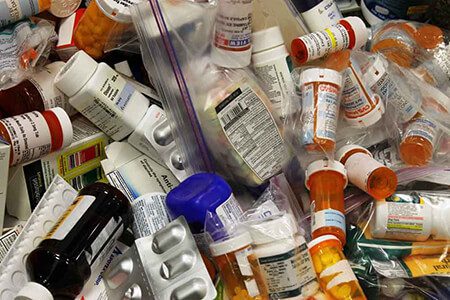
Hospitals in the United States produce over 5.9 million tons of medical waste annually. This doesn’t include medical waste from other healthcare facilities like family doctors’ offices, pharmacies, and dental offices. Of that 5.9 million tons, 25% is regulated biohazardous waste containing infectious or potentially infectious substances such as bodily fluids or blood. We’ve compiled a biohazard guide to help you assess your hazardous waste disposal needs.
What is Biohazardous Waste?
Biohazardous waste is a type of waste that is produced via:
- Surgical procedures involving the removal of tissues or specimens for laboratory testing
- Laboratory experiments that produce cultures and stocks of infectious agents including bacteria, mold, viruses or other microorganisms that can cause morbidity or mortality in humans
- Veterinary practices where surgery or testing is done that produces animal parts, fluids, or tissues that could cause harm to a human
- Traumatic incidents or medical testing that produces waste recognizably contaminated with blood from humans or animals
- Activities where sharps, like needles and scalpels, are produced
Biohazardous Waste Minimization
Often, medical waste is mistaken for biohazardous waste, and all materials are put into a “red bag” for disposal. However, much of the waste in red bags is not considered infectious and inflates disposal costs for healthcare facilities.
The disposal of biohazardous waste can be as much as 120% more expensive per pound than regular municipal trash. Reduction of the amount of biohazardous waste produced reduces costs for your facility, and the key to reduction is training your personnel.
- Ensure faculty and staff are aware of all state and federal regulations associated with regulated medical waste
- Develop a waste management plan that defines what materials are infectious material and explicitly explains how to dispose of this material
- Train staff to understand what materials are biohazardous waste and ensure only that waste is placed in “red bags”
- Conduct self-audits
Proper training of staff coupled with a management plan can keep your facility on track and reduce disposal costs.
Bring In the Biohazard Professionals
At Maine Labpack Inc., we manage regulated medical waste for customers throughout Maine and New England. We provide customized systems for medical waste generators to reduce biohazardous waste costs and effectively manage all types of medical waste.
Contact us today for more information about our biohazard waste disposal guidelines and learn how we can improve your medical waste system.
